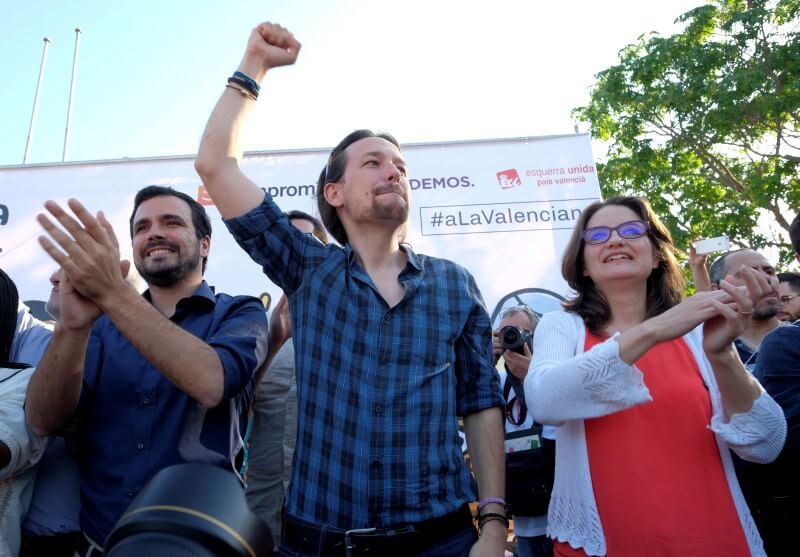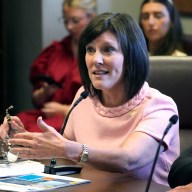By Sarah White and Carlos Ruano
MADRID (Reuters) – Spain’s two main left-wing parties could come close to clinching a combined parliamentary majority, several opinion polls showed on Sunday, a week before the country votes in its second election in six months. The June 26 election is expected to produce a similar outcome to December’s stalemate, when the entry of new political forces ended four decades of a two-party system and no single party gained enough support to govern alone Policy and leadership divisions split potential allies in ensuing negotiations, yet a better showing for left-wing contenders would increase their chances of forming a government.
Spain’s political vacuum has yet to substantially derail an economy which is on course to grow faster than most euro zone peers this year, by 2.7 percent. Unemployment still hovers at 21 percent, the second-highest rate in Europe, though jobs are returning, propelled in part by a tourism boom. But Spanish politicians worry a prolonged limbo will further alienate voters, already unimpressed with their failed efforts to form a government, while the economy could start to suffer if much-needed reforms to further fix the labor market slip. Three separate polls published on Sunday found that a leftist alliance led by anti-austerity upstart Podemos would make big gains and come a strong second in the ballot behind the center-right People’s Party (PP), leapfrogging the Socialists. Podemos, which came third in December, has since teamed up with a former communist group to form Unidos Podemos (“Together We Can”) in a bid to get more lawmakers elected to Spain’s 350-seat lower house of parliament. Thanks to strong backing among Spain’s crisis-hit poor, Unidos Podemos and the Socialists would together come a lot closer than they did last time to reaching the absolute majority of 176 seats, the polls showed. The two would still likely need the backing of smaller parties, however, one of several potential obstacles to a deal as the Socialists have shunned backing from pro-independence forces in the Catalonia region. Unidos Podemos would garner between 24.6 percent and 26 percent of the vote and between 84 and 95 parliamentary seats, according to Metroscopia, Sigma Dos and GAD3, whose surveys were published in newspapers El Pais, El Mundo and ABC respectively. In December, Unidos Podemos won 71 seats and its gains would likely come at the expense of the Socialists, who are seen falling into third place with between 20 and 21.4 percent of the vote and between 78 and 85 seats, down from 90 last time. The PP of acting Prime Minister Mariano Rajoy, meanwhile, is expected to once again win the most support, with between 20 and 30.5 percent of the vote and 113 to 129 seats.
But the center-right party may still struggle to find potent enough allies to allow it to retain power, unless the Socialists change tack and help support a PP-led minority government.
Liberal Ciudadanos (“Citizens”) could at best win one extra seat, giving it 41, the polls showed.
(Editing by Alexander Smith)
Polls show Spain’s left-wing bloc could clinch majority

By Sarah White and Carlos Ruano


















